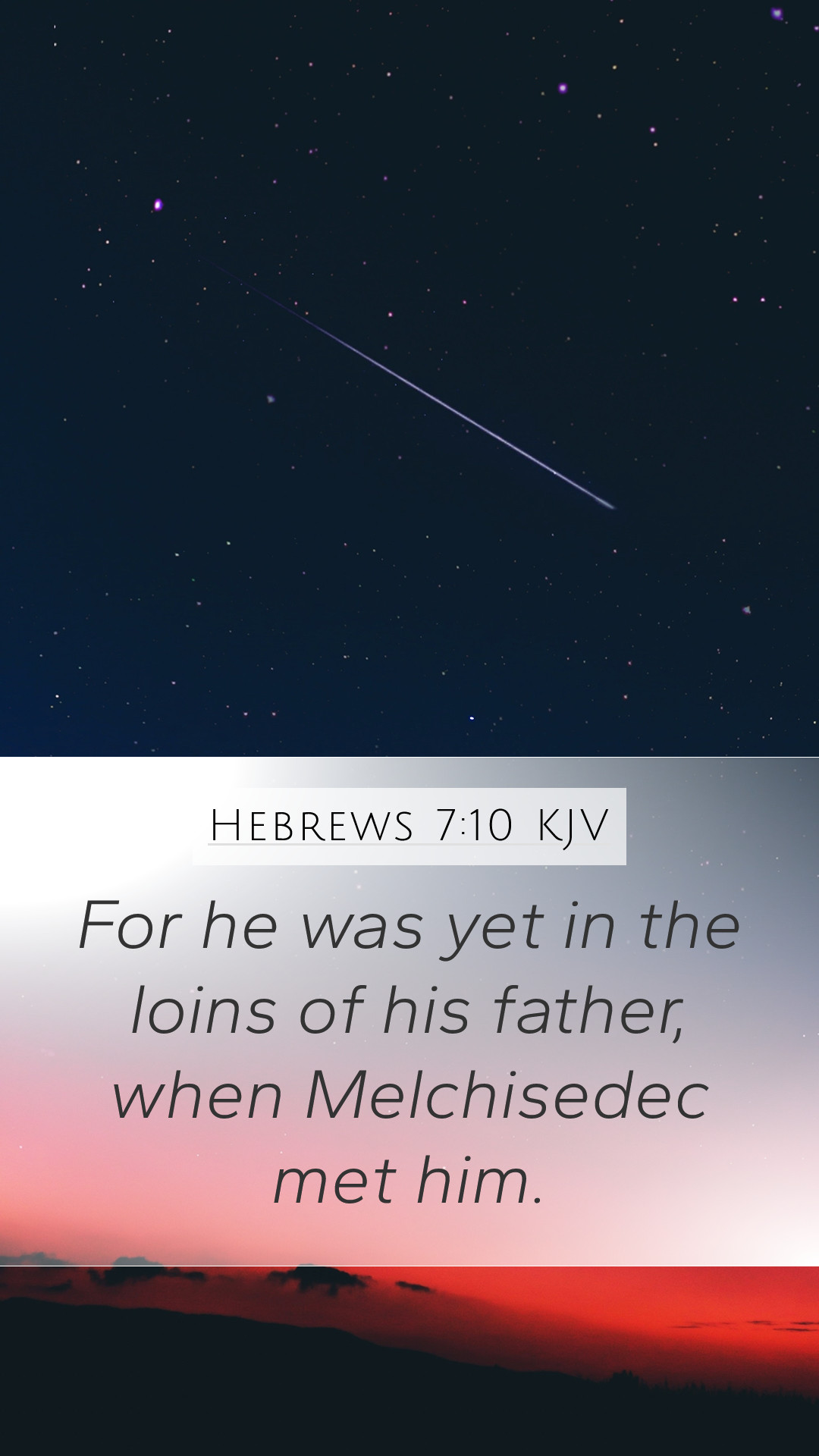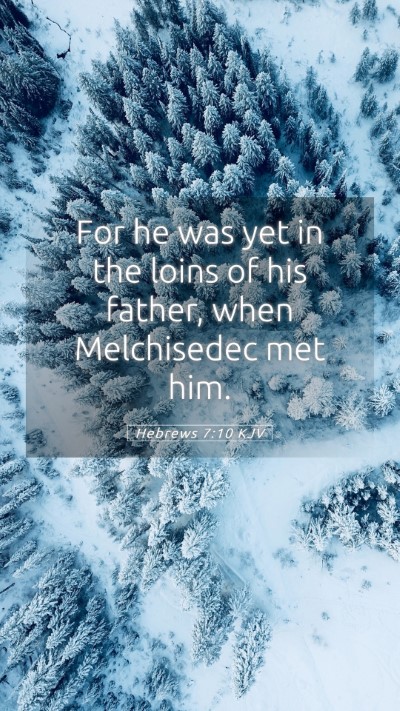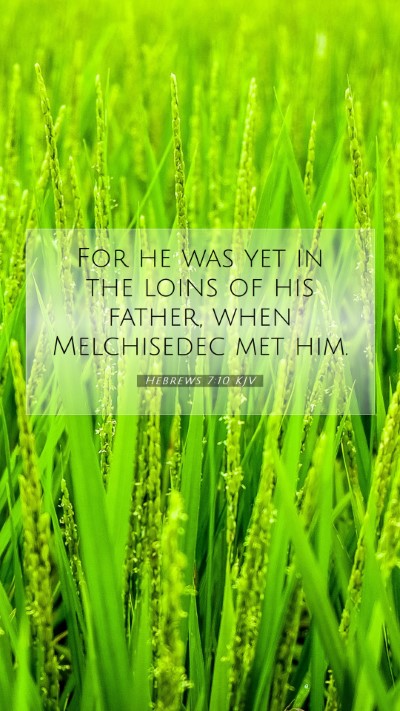Understanding Hebrews 7:10
Hebrews 7:10 states: "For he was yet in the loins of his father, when Melchisedec met him." This verse reveals profound truths regarding the priesthood and the significance of Melchisedec in relation to Abraham, which carries implications for our understanding of the nature of Jesus Christ’s priestly order.
Bible Verse Commentary
The insights from several public domain commentaries elaborate on the depth of this scripture.
Matthew Henry's Commentary
Significance of Melchisedec: Matthew Henry emphasizes that Melchisedec is a type of Christ, representing a greater priesthood that transcends the Levitical order. This verse highlights that Abraham recognized Melchisedec's superior priestly authority, signifying the divine appointment of Jesus as the eternal High Priest.
Albert Barnes' Commentary
Lineage and Importance: Albert Barnes points out that mentioning "the loins of his father" indicates that Levi was still in the physical lineage of Abraham at the time of this encounter. Therefore, the Levitical priesthood is inferior, as Levi, represented in Abraham, paid tithes to Melchisedec, thus enhancing the argument for the superiority of Christ’s priesthood.
Adam Clarke's Commentary
Historical Context: Adam Clarke discusses the historical significance of the encounter between Abraham and Melchisedec, noting that this meeting served as a divine illustration of the transition from the Old Covenant to the New Covenant, where Christ is seen as the ultimate High Priest in the order of Melchisedec.
Meaning and Implications
The passage indicates that Melchisedec's priesthood is not tied to the genealogy of Levi and was established by God Himself. This notion reshapes Biblical exegesis related to priesthood, leading to insights about Christ’s role as High Priest. It also serves as a pivotal point in understanding how Old Testament prophecies foreshadow New Testament fulfillment in Jesus Christ.
Key Insights:
- Priestly Order: The priesthood of Melchisedec signifies an everlasting priesthood, mirroring the eternal nature of Christ's role.
- Submission to Authority: Abraham’s acknowledgement of Melchisedec’s superior authority teaches us about submission to God’s chosen leaders.
- Connection of Covenants: This verse illustrates how the New Covenant fulfills the promises made in the Old Testament.
Related Bible Cross References
- Genesis 14:18-20: The account of Abraham meeting Melchisedec, establishing the historical context.
- Psalm 110:4: A prophetic acknowledgment of Jesus as a priest forever after the order of Melchisedec.
- Hebrews 5:6-10: Discusses Christ's priesthood in detail, confirming the link to Melchisedec.
Applying the Verse to Daily Life
Understanding Hebrews 7:10 through these commentaries encourages believers to delve into the richness of scripture, recognizing the deeper meanings and applications for spiritual growth. This encourages a more profound appreciation for the interwoven narratives of scripture, providing a guide for Bible study insights.
Practical Applications:
- Engage in online Bible study groups discussing the connections between the Old and New Testament.
- Utilize Bible study tools and resources to deepen your understanding of biblical covenants.
- Explore Bible study guides that focus on the priesthood of Christ for enhanced spiritual insight.
Conclusion
In summary, Hebrews 7:10 provides a critical insight into the nature of priesthood in biblical theology, illustrating how Jesus Christ fulfills the righteousness and authority portrayed by Melchisedec. By studying such passages, believers can enrich their understanding of scripture and appreciate more fully the unity and harmony within God's word.


